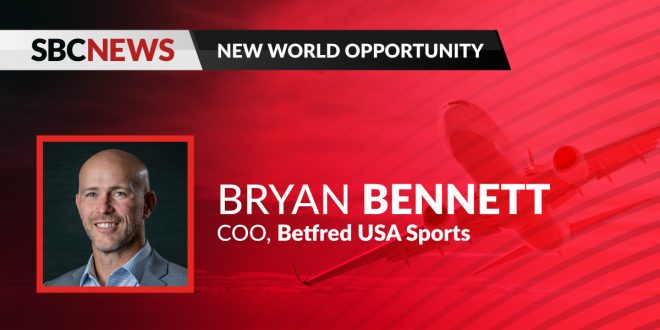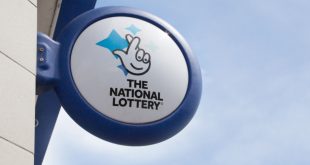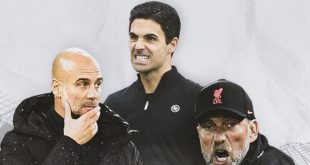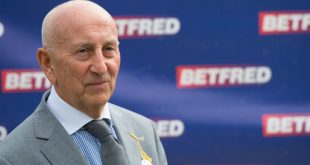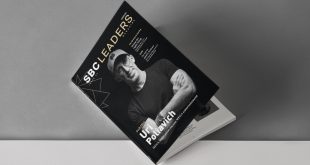A staple of the British high-street, Betfred is one of the country’s most recognisable betting brands with a reputation built upon its retail offering and sponsorship activities, and the company is now embarking on its ambitious global growth plans.
Following the long-awaited launch of its Las Vegas sportsbook this month, Betfred USA Sports Chief Operating Officer Bryan Bennett spoke with SBC Media’s New World Opportunity series to explain the approach Fred Done’s bookmaker has taken to stateside business.
Finding a voice
As Bennett observed, Betfred is a highly visible business in the UK – its 1,400+ strong portfolio of betting shops is a regular site in British towns and cities providing a ‘billboard everywhere’, whilst Fred Done is a well known public business figure.
In the US, the company had nowhere close to this level of publicity upon making its first market launch in Iowa, back in 2020 – as Bennett put it, the firm’s marketing strategy has had to focus on creating ‘an American voice for Betfred’.
He added: “Betfred is a big brand in the UK and people know who Fred is, but in the US we were known as ‘the sportsbook with the funny name’ as no one knew who he is.
“We’re still working on that, and we’re settling on what the Betfred brand is. We’re putting ourselves forward as an authentic, everyman book. We don’t hire celebrities and film stars to represent us, we’re built by and run by bettors for bettors. That’s the brand positioning we’re settling on.
“We focus on hyperlocal marketing, we don’t do any national and we don’t do TV – it’s a drop in the ocean. So we sponsor local radio shows, local teams and events, we’re really just trying to be the local book and believe this is the strategy we can most deliver on.”
Outside of its betting shops, Betfred – like many other bookmakers – has built up its reputation via sports marketing. Notably, the company is a long-standing partner of the Super League, England’s top-tier rugby league tournament.

This ‘legacy’ of successful sports sponsorships has helped the brand find local partners in the US, such as with the likes of the Cincinnati Bengals and Vegas Golden Knights.
Bennett explained that Betfred’s history of such partnerships in the UK has helped educate teams ‘that we know how to do these sponsorships and are not naïve’.
He also noted particularly strong synergies with the Bengals when launching in Ohio due to the NFL franchise’s status as a family owned business, similar to Betfred’s history of expansion from its founding location in Salford, Greater Manchester.
“With the Bengals our story helps because they are one of the few teams who are still owned by their original family, the Brown family,” the COO said.
“They are also one of the only ones who are billionaires because of their team, and this has some comparisons with Betfred, as a family owned business with a history of success.”
Making American adaptations
For any European legacy firm to launch in the US, there are some key challenges and differences to meet, in Bennett’s view, particularly regarding customer preferences and regulatory matters.
Whilst having a solid foundation in the UK has been nothing but beneficial for Betfred, the COO added that this has been twinned with local recruitment, employing people with strong knowledge of the existing casino network, including tribal operators.
“That is almost a requirement to operate in the US and navigate the complexities it brings,” he said. “We came in with realistic expectations – It’s a marathon, not a sprint, and it can be a slog at times because nothing happens quickly.
“You don’t just decide to go into Ohio, for example, and a month later launch your product. Business development deals come first, and then licensing can take anywhere from six months to a year.
“Going in with realistic expectations was critical, and the Betfred team had these realistic expectations, and have been prepared for when things don’t go to plan.”
Having long operated under the national umbrella of the UK Gambling Commission (UKGC), Betfred’s key observation of the US has been the regulatory environment on the other side of the Atlantic.
To meet this hurdle, hiring the right people has again been crucial to the firm’s stateside rollout, specifically seeking people with a background in regulatory affairs, such as Cynthia Hayes, Head of Compliance.
“It’s very fragmented, the compliance and licensing is not always easy,” Bennett explained. “That was the biggest piece the UK team had to get around, adapting to the American way of licensing and compliance.
“Getting someone in who understands that area is really important, and we also had to make sure we hired the right attorneys and consultants to navigate the licensing framework.
“I think a lot of European companies started by hiring a European-based person and transferred them over, whilst Betfred did it differently – and this was the right way to go.”
This all does not change the fact that the US and UK are ‘wildly different’ jurisdictions, with transatlantic changes applying to both retail and online operations, as well as market share and customer preferences.
Playing the right game
The US betting space has two defining characteristics – it is hyper competitive, and highly dominated by a few major players, each one backed by a large marketing budget.
In Betfred’s US experience, a major difference from the firm’s UK heartland was on bonuses. As Bennett observed, in the UK a firm may offer a welcome bonus of around £1-£20 – in the US, this could be up to a $5000 free bet.
He continued: “Those sorts of offers create a challenging environment – we don’t play that game. We’ve taken the lessons from our UK team that if we try to keep up with the arms race of bonuses it’s going to have an impact.
“We have lower welcome bonuses and higher retention bonuses. We show customers who we are, then win their loyalty with some good rewards.”
Again, when competing against the likes of FanDuel and DraftKings – who had a strong head start due to a long background in US fantasy sports – experience proved to be the winning tool for Betfred, coupled with its hyperlocal approach to marketing.
Over 10-15 years of experience in the UK has translated well to the US online space, according to Bennett, particularly regarding bonuses – which, as any stakeholder knows, are rife for abuse.
“We’ve been able to utilise the payments and fraud team in Gibraltar for our business and they’ve been really helpful,” he said.
“Finance and legal, all of that is still managed out of the UK .It gives us the luxury of experienced people in those roles without having to staff them specifically here and learn lessons all over again.”
Meanwhile, back on the ground, Bennett noted geographic differences as a notable area of consideration for retail betting, pointing to the mountainous nature of states such as Colorado, which can hinder customers’ access to certain sportsbooks.
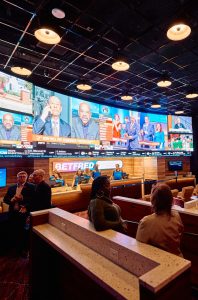
“It is market based,” he said. “In Colorado retail is somewhat hindered by geography of the mountains, but in Iowa, our book is amazing because we’re in the northwest near Minnesota and South Dakota, so all the people from Sioux Falls drive into Iowa to place a bet.”
Lastly, in its newly launched state of Nevada, retail ‘is heavy for a variety of reasons’, but Betfred expects its sportsbook in Las Vegas – which is ‘for better or worse, the gaming capital of the US’, Bennett noted – to maintain momentum after its pre-Super Bowl opening day.
Concluding the interview, Betfred USA Sports’ COO underscored the importance of engagement at the centre of the customer experience and marketing, and expressed hope for the future rollout of regulated betting across some of the US’ biggest states.
“Engagement is the secret behind betting in general, it’s about making any game interesting. Making a wager is the great equaliser, and that’s why so many consumers are clamouring for betting.
“Bringing it into the light on a state by state basis has done nothing but good, and hopefully the bigger states like Texas and California will do.”
